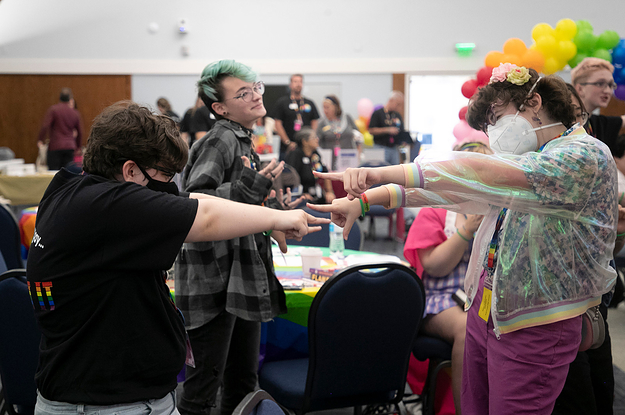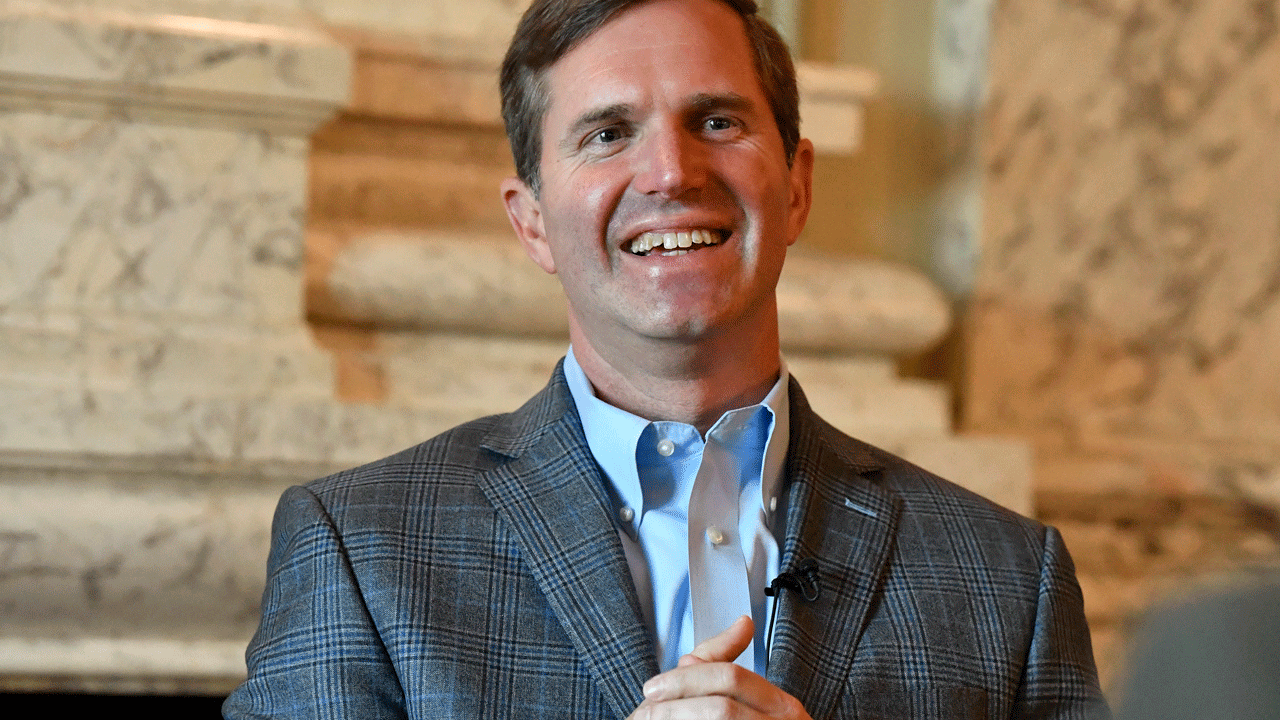Most prominently, there was the passage in March last year of the Parental Rights in Education Act, known widely to critics as the “Don’t Say Gay” law, which restricted “classroom instruction … on sexual orientation or gender identity” for children up to the third grade and discussions of those subjects “in a manner that is not age appropriate or developmentally appropriate for students.”
But the new law isn’t just affecting young children. It has chilled speech in classrooms across Florida, with school officials fearful of lawsuits taking down rainbow decorations or avoiding certain topics. Some have felt afraid to mention their own same-gender spouses. Just last week, days before the kids gathered in Naples, DeSantis signaled his intention to expand “Don’t Say Gay” from its current form to officially cover students from grades 4 to 12.
Another law has empowered any resident of Florida to lodge objections to material in classrooms or school libraries, which conservative groups have seized on to lobby for scores of books that discuss LGBTQ or race issues to be banned. Bookshelves have been covered to shield them from view as their contents await screening and approval by certified officials.
The most victimized students in Florida, though, have been transgender or nonbinary children. In addition to a 2021 law banning transgender girls from playing in sports teams for student-athletes who were assigned female at birth, a ban on gender-affirming medical care for transgender minors took effect this month.
This law prompted Kayak, a 17-year-old junior who identifies as transmasc nonbinary, to race to begin hormone replacement therapy in December so they’d be covered by an exception that protects minors who have already started their treatments
The combined effect of these attacks has left LGBTQ students like Kayak feeling dismayed or worse. According to a 2022 survey from the Trevor Project, a suicide prevention nonprofit, 45% of Florida LGBTQ youth seriously considered suicide in the past year and 16% attempted it. These rates are higher for transgender or nonbinary youth at 54% and 20%, respectively.
The Trevor Project notes that LGBTQ young people are not inherently prone to being at a higher risk for suicide, but rather find themselves at increased risk due to social stigma or mistreatment. Their report found that 74% of respondents had experienced discrimination in the last year, while 86% felt recent politics had negatively affected their well-being sometimes or a lot. Laws framed as protecting children are actively harming them.
“It’s just scary to exist here because I’m becoming a queer adult. And when you transition from a queer child to a queer adult, you go from a victim to a ‘groomer,’ to a pedophile,” Kayak said. “As a trans guy, I’m terrified of being a trans adult because then I’m a ‘bad person.’”
But the political onslaught isn’t over. There are 10 more bills still pending in the state legislature that the ACLU has identified as harmful to LGBTQ people, including a bill restricting bathroom use for transgender people and a broadly worded bill that would, among other things, require all transgender youth to detransition. If it’s passed, parents who try to seek gender-affirming care for their children in another state could have their kids removed from their custody.
It was for these reasons that Shaw, the GLSEN chapter director, said the conference discussion on gender-affirming care was critically important because it would share information that some kids might be desperately trying to look for online. Instead, nurse Mishya Nishioka, the director of gender-affirming hormone therapy services for Planned Parenthood of Southwest and Central Florida, talked with interested attendees about hormone options, fertility preservation, and updating gender identity on legal documents.
“The presentation for some of those kids is going to be lifesaving,” Shaw said.



